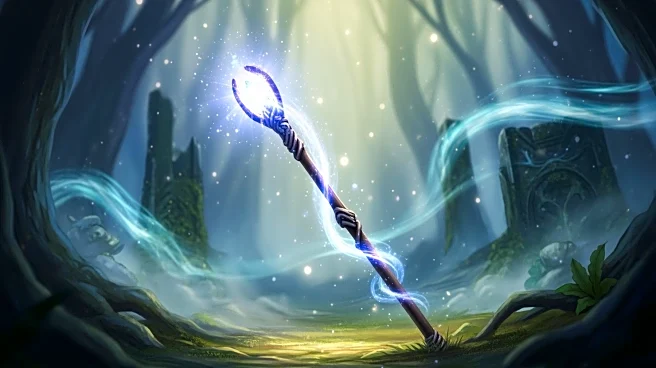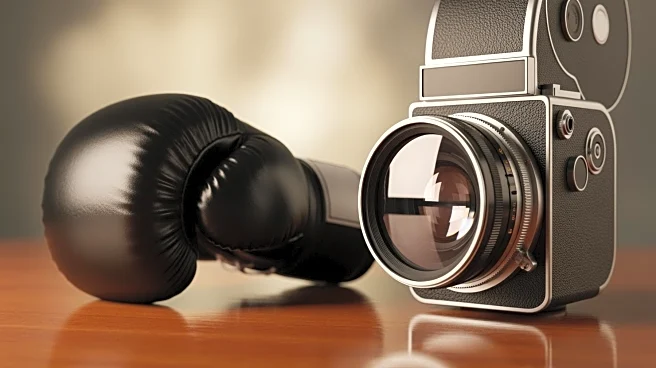What's Happening?
Julian Triveri has developed Wizardtag, a new iteration of his Quest 3 Lasertag game, which replaces traditional laserguns with voice-activated spellcasting wands. This innovation utilizes continuous scene meshing technology, eliminating the need for
room scanning and setup. Players can cast spells like Fireball, Lightning, or Shield using the Vosk speech recognition model, which ensures low latency and responsive gameplay. Wizardtag was showcased at Purdue University as part of a freshman orientation event, themed as a magic dueling class. The game uses AprilTags for tracking, offering a more stable multiplayer experience compared to Meta's Shared Spatial Anchors.
Why It's Important?
Wizardtag represents a significant advancement in mixed reality gaming by integrating voice recognition and continuous scene meshing, enhancing user experience and interaction. This development could influence the future of AR/VR gaming by providing a more immersive and interactive environment. The open-source nature of Triveri's technology allows other developers to adopt and innovate further, potentially leading to broader applications in educational and entertainment sectors. The game's success at Purdue University highlights the potential for such technologies in academic settings, promoting engagement and interactive learning.
What's Next?
Triveri plans to integrate Wizardtag into the Meta Horizon Store as a new game mode for Lasertag. This move could expand the game's reach and popularity, encouraging more developers to explore similar innovations. The gaming community and educational institutions may show increased interest in adopting such technologies for various applications. As the technology evolves, further enhancements in voice recognition and scene meshing could lead to more sophisticated and diverse gaming experiences.















